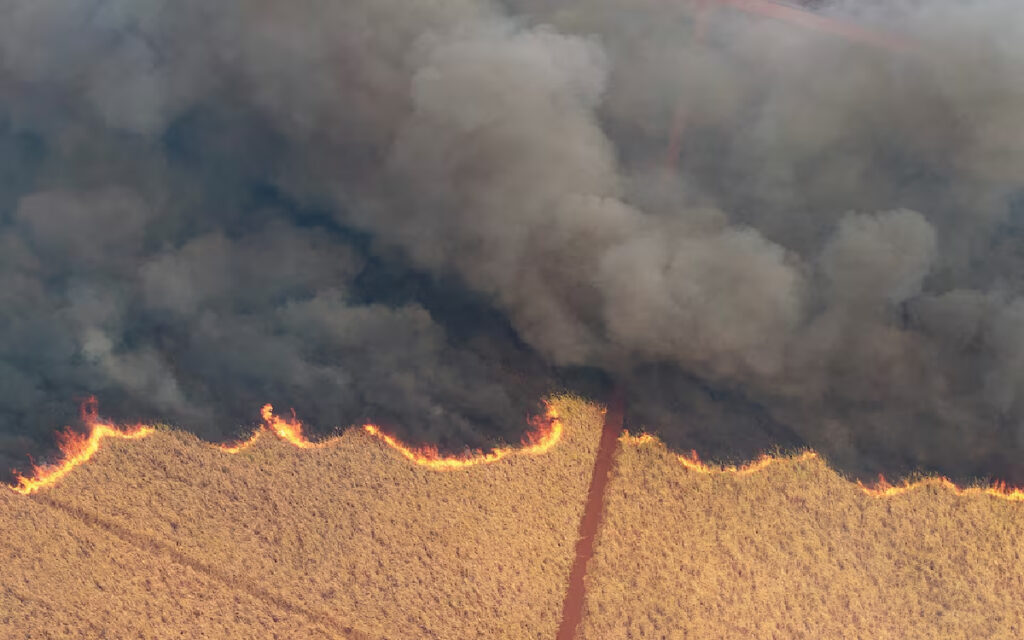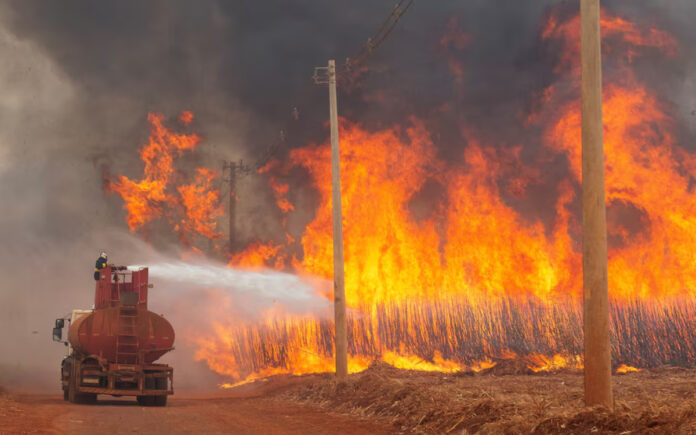São Paulo: Wildfires tore through sugarcane fields in northern São Paulo state on Saturday, engulfing nearby towns in thick clouds of smoke. The situation prompted officials to ban outdoor activities, including a Brazilian championship soccer match in Ribeirão Preto, one of the most affected regions in the state’s west.
The fires led to the closure of several state highways due to severely reduced visibility. Disturbing scenes of charred cattle corpses dotted the landscape, victims of the intense heat and smoke.
“The firefighters are unable to control the flames. We can’t do anything,” said local farmer Silvio Dantas, 56, who stood helplessly in his field as columns of smoke billowed in the distance. “The fire has burned plants, destroyed houses, and killed cattle. This is very tough,” he added.

The São Paulo government declared 36 cities on “high alert” as fires continued to spread during the peak of the dry season, which has left fields parched and temperatures soaring. São Paulo Governor Tarcisio de Freitas activated an emergency task force, deploying additional firefighting aircraft and chartering planes to spray water over the blazing fields.
Also Read | Russia, Ukraine Swap 115 Prisoners in UAE-Brokered Exchange
Tragedy struck on Friday in Urupês, near Ribeirão Preto, where two firefighters lost their lives while battling flames at a sugar mill. The fires destroyed 200 hectares of sugarcane plantations in the area.
Raizen, the world’s largest sugarcane processor, suspended operations at one of its plants in Sertãozinho on Thursday due to the spreading fires in the surrounding fields.
Also Read | Israel Launches Strikes on Hezbollah in Lebanon, Citing Self-Defence
Even São Paulo, Brazil’s largest city located 350 kilometers to the south, saw its skies darkened by smoke on Friday. By Saturday, conditions had improved, though the fires continued to rage in other parts of the state.
Brazil’s wildfire season typically peaks in August and September, but this year, the fires began early. In late May, wildfires broke out in Pantanal, the world’s largest wetlands, while the Amazon saw its highest number of fires in two decades for the month of July, according to government data.



